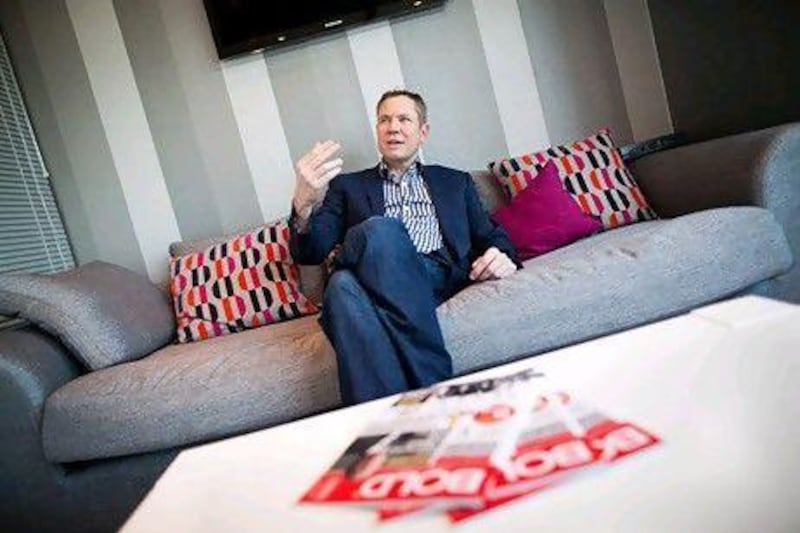The British journalist James Hipwell has survived prison, two kidney transplants, and questioning during the Leveson Inquiry into media ethics in the United Kingdom. His next challenge is in the Middle East media industry, as editor in chief of Bold - a monthly business magazine based in Beirut. Mr Hipwell, who spent two months in prison over the "City Slickers" share-tipping scandal, talks about his move to the Middle East.
What is Bold all about?
It's a business magazine with some lifestyle content. We're trying to aim the magazine to people who might be interested in reading Forbes magazine. So it treats business in, hopefully, a lively and inviting and fresh way.
Why did you call it Bold?
We thought of a lot of titles that shout business, like Equity, The Board, and Portfolio. But Rani Ohanessian - the publisher of the magazine - wanted to call it something that didn't immediately say that it was a business magazine … And we settled on Bold.
You have had health problems in the past. Tell us about your second kidney transplant.
My wife gave me a kidney in September 2010, and it took quite a while to recover from that. I was on dialysis in hospital in London, and generally not having a very good time. She was tested to see if she could give me a kidney, and by some miracle she could. And so the operation was in September 2010 and it was a success.
Why did you move to Beirut?
I moved out in October. My wife always wanted to come to the Middle East. And so … in May of last year, we came out to Beirut, really liked it. We went back to London and just thought, what are we doing here?
What's your impression of the Beirut media scene?
I think advertisers do have more sway here than they would in the West. But then again, it's a much smaller market, and you can't really rely on newsstand sales. And so you have to have very flourishing advertising in your magazine. You cannot make enough money from newsstand sales alone. It's all on advertising sales.
You appeared at the Leveson Inquiry, the UK investigation into press standards after the phone hacking scandal. Do you think the inquiry was effective?
It's too early to say yet. We haven't had the report or the findings, and they haven't made any recommendations. But I really think there's an opportunity for proper, or more effective, press regulation. The [UK's Press Complaints Commission] really did need reforming. It was completely toothless. It certainly needs to become a more effective body. And I think that might happen.
Your former colleague Anil Bhoyrul is a media executive in Dubai. Do you stay in touch?
Yes. We're friends on Facebook. But I haven't spoken to him for a few years. We share emails.
How long will it be before Piers Morgan - CNN host and the former editor of The Mirror - relocates to the Middle East?
[Laughs.] Well, his ratings at CNN aren't great, are they? I can't imagine why he would ever come to the Middle East. But it would be pretty funny if he did.
* Ben Flanagan
twitter: Follow our breaking business news and retweet to your followers. Follow us





